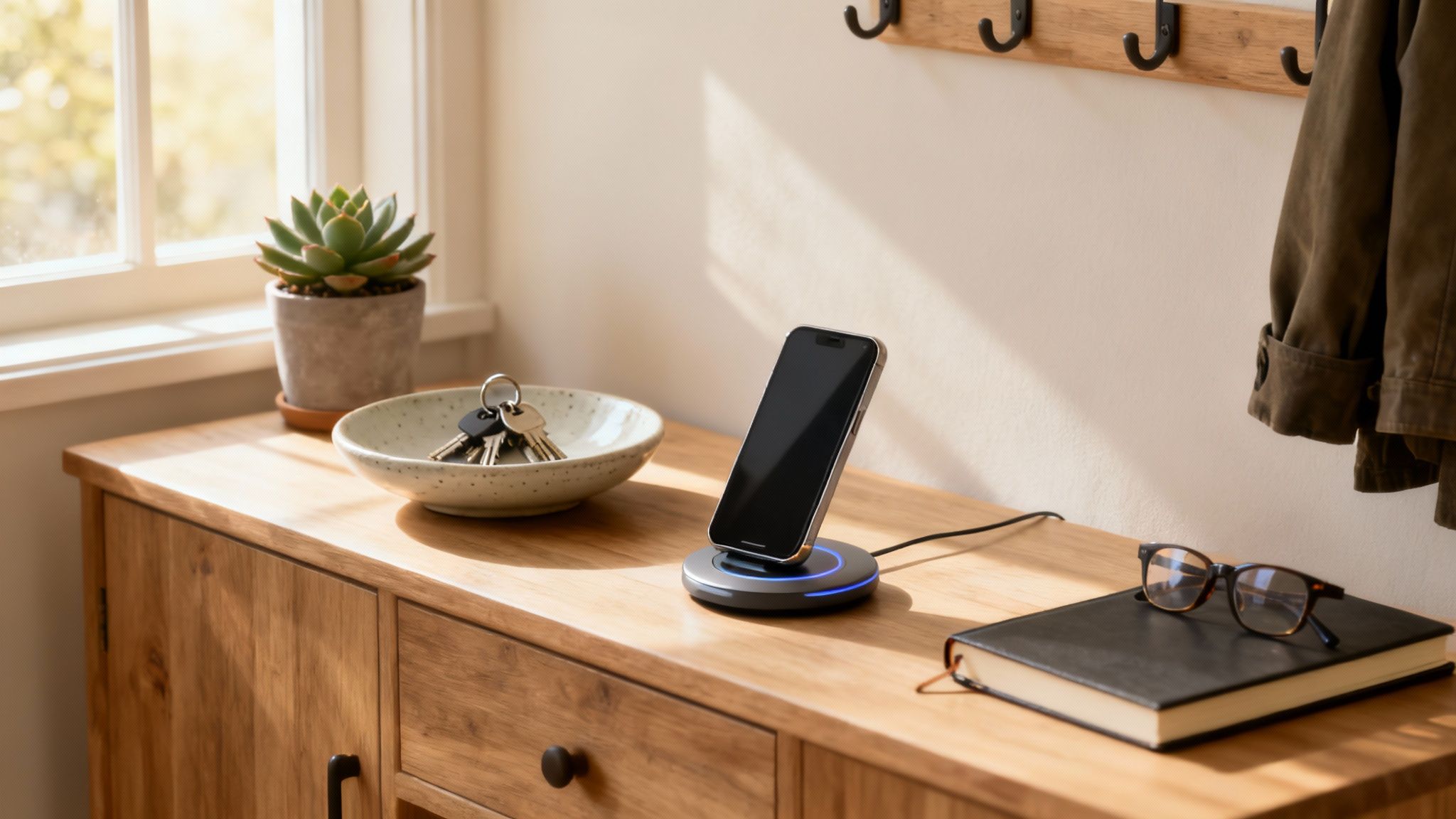Impulse spending feels fun and exciting at the moment. You've found something you like so much that you have to have it now.
However, that excitement can quickly become a concern if and when you realize it's become a habit and your finances are struggling.
Impulsive spending is not exclusive to those with ADHD, but with impulsivity as one of the most prominent symptoms of the condition, it's much more common to see this type of spending in ADHDers.
Let's dive into why you may be finding yourself down the dark hole of impulsive spending and strategies to dig yourself out of it and back to a more stable form of spending.
Too long; didn't read
- Impulsivity is a common symptom experienced by many ADHDers, but not every person with ADHD struggles with it.
- Dopamine is a neurotransmitter that regulates pleasure and motivation. It's most likely the culprit behind impulsive spending behaviors.
- People with ADHD also struggle with time blindness and forgetfulness, which can contribute to impulsive shopping.
- Stop impulsive purchasing habits by creating a spreadsheet, using cash, and using the 24-hour rule.
Why are people with ADHD prone to impulsive spending behaviors?
That idea of acting now and thinking later is common among people with ADHD.1 And naturally, such impulsivity bleeds into the world of spending, too.
What others may see as an inability to practice self-discipline is actually a manifestation of the ADHD brain's physical differences compared to neurotypicals.
The link between dopamine and impulsivity
One key marker of ADHD is low dopamine levels in the brain.2 Dopamine is the neurotransmitter in charge of feeling pleasure, fulfillment, and happiness. The brain releases dopamine when we're doing something that feels pleasurable or makes us happy or excited.
For someone with ADHD and, thus, a lack of dopamine, they find themselves (often subconsciously) on the hunt for more. This is called "dopamine-seeking behavior."
Impulse buys can enhance feelings of pleasure for someone who struggles with hyperactive-impulsive symptoms of ADHD. As a result, more dopamine is released, creating intense motivation to 'do the thing' again—in this case, impulsive spending.
However, this also creates an addiction to impulsive spending and other impulsive behaviors that provide that dopamine rush. And unfortunately, the rush is often followed by a crash back down to reality and the realization of the consequences of said behaviors.
Time blindness
Time is another challenge that ADHDers face. The passing of time and, thus, time management presents issues due to ADHD-related time blindness. Time blindness causes people to change their perception of time and lose sight of how much time has passed.3
How does this relate to impulse spending?
Well, purchases put on the credit card today are tomorrow's problem, but as an ADHDer, that tomorrow may come sooner than they think. So they may forget about a shopping spree until the bill comes and then face the weight and stress of debt.
Forgetfulness
Speaking of forgetting... Trouble with remembering things is another very common symptom of ADHD.
Forgetting about impulsive spending is certainly not a conscious choice that ADHDers make – instead, it's how the brain operates due to the disorder.
How to stop your impulsive spending behaviors
Though many different symptoms of ADHD make it feel like you are doomed to impulsive spending, there are various tips and tricks you can implement to halt this kind of spending behavior and, thus, help get your finances in a better place.
1. Minimize online shopping. (If you can)
The convenience of online shopping may seem noteworthy, but it makes it far too easy to spend a lot of money quickly. With a few mouse clicks or screen taps, you can have thousands of dollars worth of unnecessary items on their way to your home in minutes.
To avoid this, try to do as much physical shopping at stores rather than online. (However, we understand that some readers may have physical disabilities or anxieties about public places due to the pandemic. If that applies to you, skip this tip!)
⚠️ Heads up! Steer clear of malls which have more chances of distracting you with other stores, sales, and shopping opportunities. (Real talk - do malls even exist anymore?)
2. Shop with cash.
Because swiping a credit card is so easy and allows your spending to become a later problem, using cash will help you better understand how much you're spending and make it a problem now.
3. Wait to purchase that thing you think you need.
If there is something that you want to buy, resist the urge to buy it immediately. Instead, wait 24 hours before actually purchasing it.
Why this works: Waiting to buy something is especially important when considering big purchases. By postponing your purchase for at least 24 hours, you eliminate that quick hit of dopamine you'd get from buying it impulsively. You may not even want it anymore when you come back to buy it the next day.
4. Track your spending.
By creating a spreadsheet of all your spending, you will quickly and easily be able to see where you're spending money that you don't need to.
Each time you make a purchase, log it into the spreadsheet. If you bought with a credit card or it is a bill, mark on that spreadsheet when you've paid off that amount. This will help you visually understand your spending and where it tends to go off track.
5. Make a list.
*audience groans*
I know, I know! "Make a list" is an overused piece of advice ADHDers hear from neurotypicals, but hear me out!
Do you ever notice that it's much easier to stick to buying just what you need and nothing more when shopping with a list?
Writing down only what you need helps to keep you focused and stay on track with your spending.


.jpg)



.jpg)
